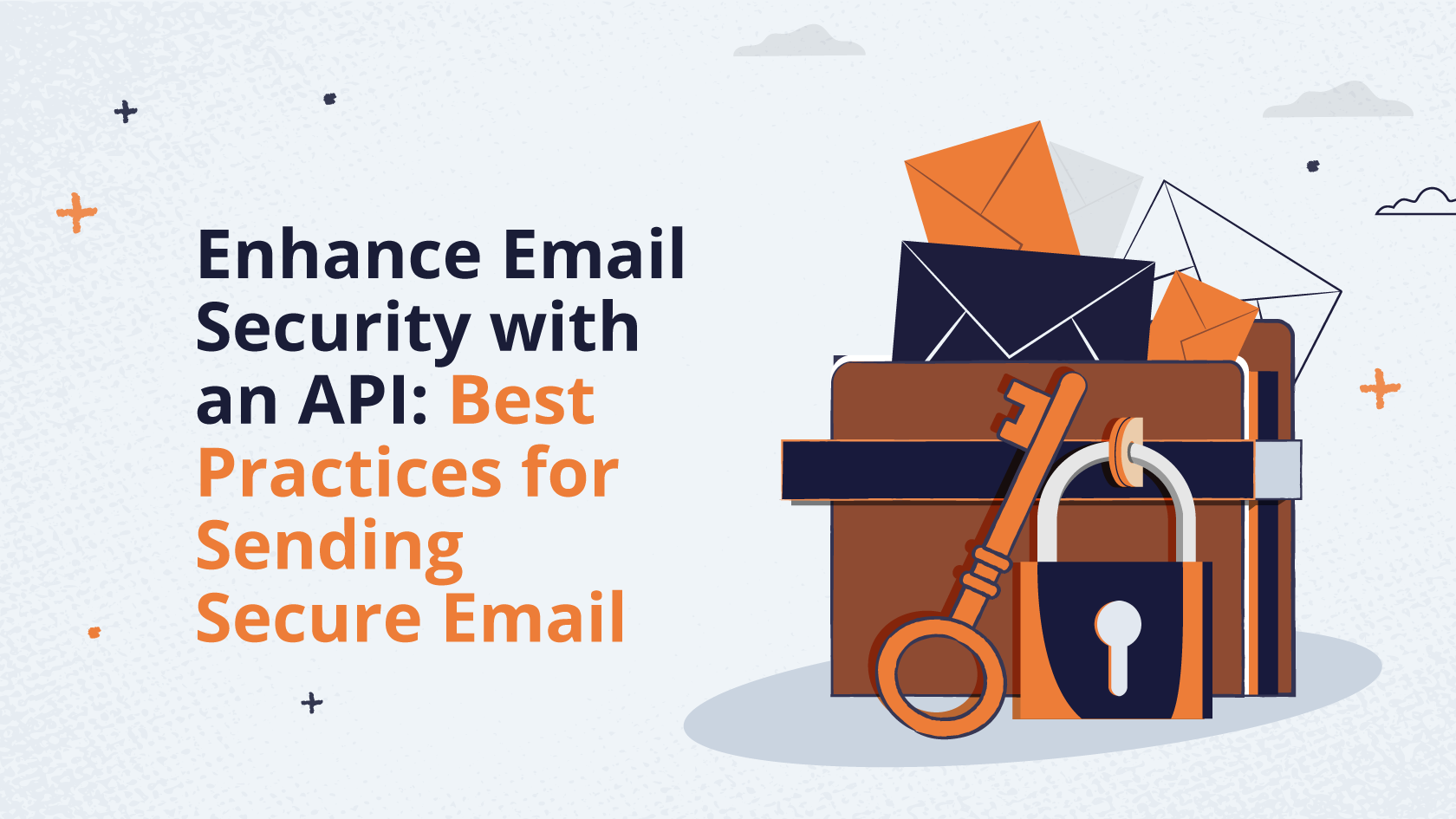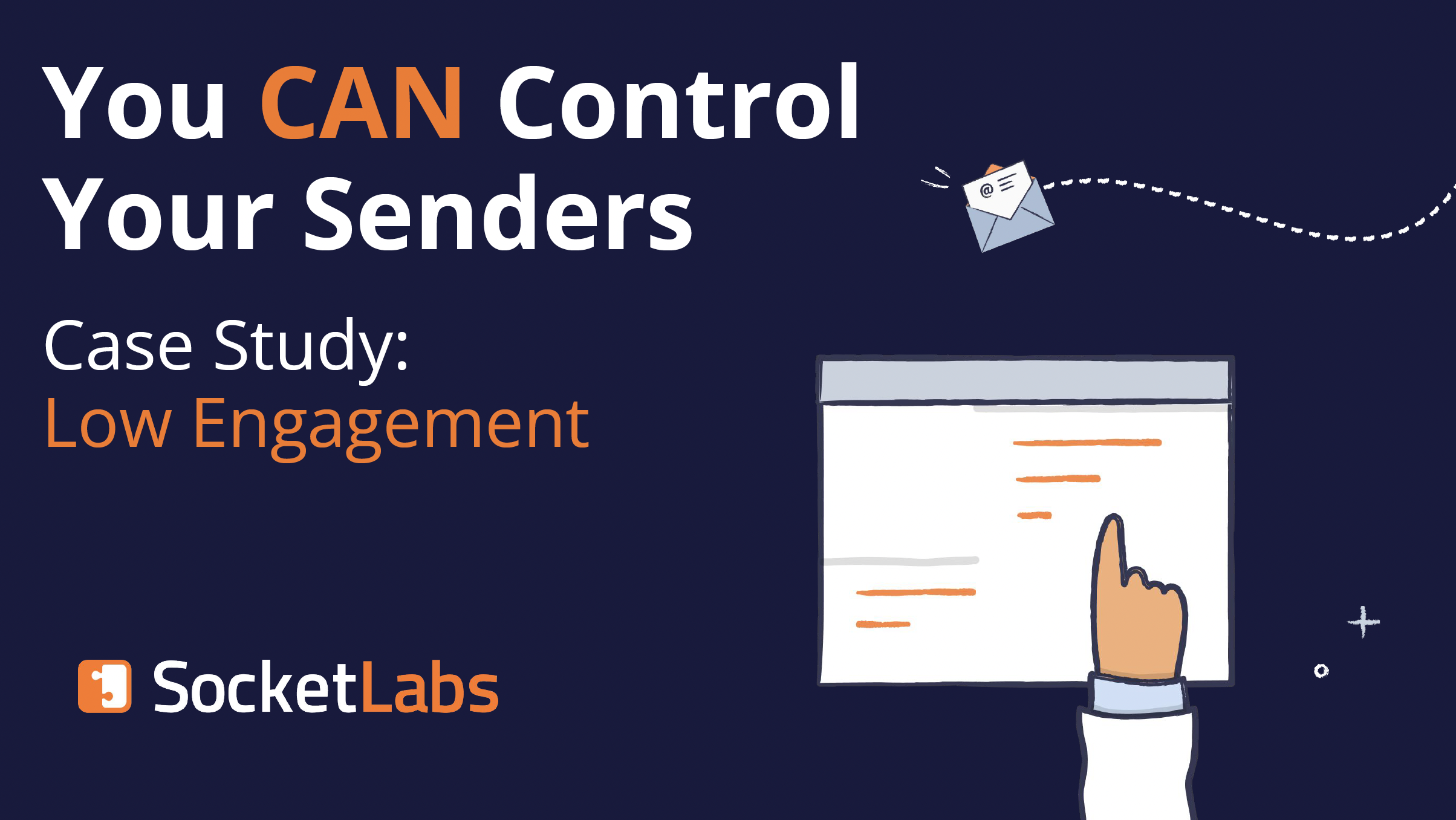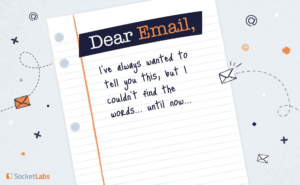
In today’s rapidly evolving digital landscape, safeguarding the security and privacy of email communications has become a critical concern for individuals and businesses alike. The increasing prevalence of data breaches, cyber threats, and privacy regulations like GDPR necessitate proactive measures to ensure the integrity and confidentiality of sensitive information. In this comprehensive guide, we will delve into the world of email application programming interfaces (APIs), uncover their functionality, and explore how SocketLabs’ Email Injection API can empower you to send secure emails with ease and confidence.
Understanding email APIs: empowering secure communication
An email application programming interface (API) serves as a gateway to access and leverage the extensive capabilities provided by an email service provider (ESP) like SocketLabs. These APIs offer a range of features and functionalities enabling developers to send, receive, and manage email communications seamlessly within their applications. In particular, our focus will be on the Send Email API, often referred to as the Injection API, which enables developers to integrate secure outbound email sending into their applications effortlessly.
Unleashing the power of the Email Injection API
Our Email Injection API revolutionizes the way businesses send email communications securely. With the Injection API, you can transmit outbound email from your application via simple HTTP Post Requests, eliminating the complexities associated with traditional SMTP-based email transmission. By using the capabilities of the Injection API, you gain total control and flexibility over your email communications for enhanced security and peace of mind.
Building secure connections: How does the email API work?
When utilizing an API for sending messages, your server initiates an HTTP Post Request to SocketLabs, securely delivering the email content. SocketLabs processes the request and forwards the message to the intended recipient’s mailbox provider (MBP) such as Gmail or Outlook. Upon acceptance, SocketLabs receives a notice confirming the secure transmission of your email. This streamlined approach offers greater efficiency and reliability compared to traditional SMTP-based email delivery.
Strengthening email security: Best practices for safe communication
While an API itself does not inherently enhance the security of your messages, following best practices is vital to reinforce the confidentiality and integrity of your communications. Implementing the following security measures will fortify your email infrastructure, whether you choose to send emails through an API or SMTP:
- Embrace Transport Layer Security (TLS): Secure your email transmissions with enforced or opportunistic TLS encryption. TLS establishes a secure channel between your application and the recipient’s email server, ensuring that your messages remain confidential and protected from unauthorized access during transit.
- Authenticate emails with DKIM and SPF: Employ industry-standard email authentication protocols like DomainKeys Identified Mail (DKIM) and Sender Policy Framework (SPF). DKIM uses cryptographic signatures to verify the authenticity of your messages, while SPF allows domain owners to specify authorized IP addresses for sending email, reducing the risk of spoofing and unauthorized use of your domain(s).
- Implement DMARC for comprehensive protection: Domain-based Message Authentication, Reporting, and Conformance (DMARC) is a powerful protocol combinin DKIM and SPF authentication, providing a robust framework to protect against email fraud and impersonation. By implementing DMARC, you can establish policies that instruct recipient servers on how to handle unauthenticated emails, minimizing the impact of phishing attacks and domain abuse.
- Partner with a trusted ESP: Collaborate with an established and reputable ESP (like SocketLabs) to leverage their expertise and advanced infrastructure. Ensure your ESP supports TLS, DKIM, SPF, and DMARC, and adheres to rigorous security standards and compliance regulations like GDPR and Privacy Shield. By partnering with a trusted provider, you can leverage their secure APIs, data centers, and security measures to safeguard your email communications effectively.
SocketLabs: your trusted email security partner
SocketLabs is a leading ESP dedicated to empowering developers and businesses with secure email solutions. Our suite of APIs, including the Email Injection API, offers unmatched flexibility, reliability, and security. With support for TLS, DKIM, SPF, and DMARC, plus GDPR and Privacy Shield certifications, SocketLabs promises your email communications remain protected and compliant.
Conclusion: Unlock the potential of secure email communication with an email API
In an era of escalating cyber threats and stringent privacy regulations, integrating an email API into your application is a strategic imperative. While an API alone does not inherently enhance security, employing best practices and partnering with a trusted ESP can fortify your infrastructure and protect your sensitive information. When you embrace the power of SocketLabs’ Email Injection API, you can leverage its comprehensive suite of security features to send safe, seamless, and confident email communication.
Take control of your email security today and safeguard your messages with SocketLabs.







